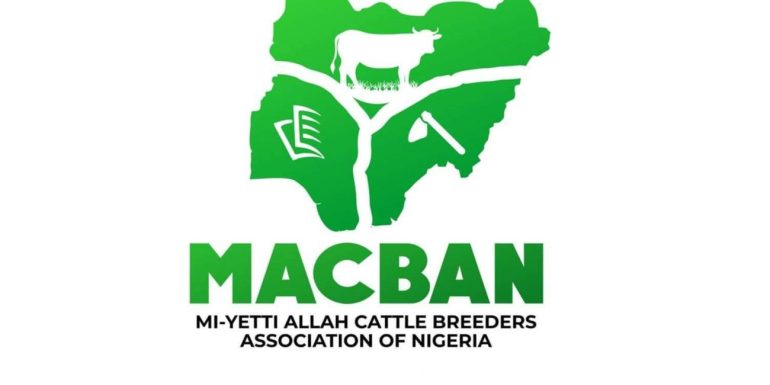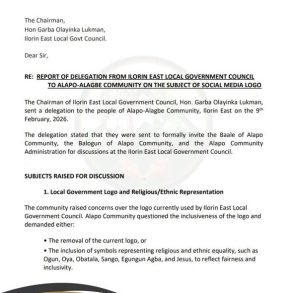April 15, 2025
By Adedoja Adesoji
The Miyetti Allah Cattle Breeders Association of Nigeria (MACBAN), Oyo State chapter, staged a protest on Monday, expressing deep concern over the alleged detention of their members and their exclusion from the state’s Rule of Law Enforcement Agency.
The protest led by the Serkin Fulani of Oyo State, Alhaji Yakubu Bello, and the association’s liaison officer, Adam Abdukadir, the group accused the state authorities of marginalization and injustice against Fulani herders operating in the region.
“We are not against the law, but it must be enforced with fairness and justice,” said Abdukadir.
“Our people are peace-loving and committed to living in harmony with their host communities.”
The protesters demanded urgent intervention from the state government, traditional rulers, and civil society organizations to address their grievances.
According to Bello, the detained herders were arrested unjustly under the state’s anti-grazing law.
“Our members, who were arrested, were innocent of the offense they accused them of,” he said.
“The Rule of Law Enforcement Agency did not give them a fair hearing before remanding them in prison.”
The MACBAN leaders emphasized their dedication to peace and security in the state, calling for better collaboration and understanding between their group and the state authorities.
“We want a peaceful coexistence,” Bello said.
“We are part of the society, and our voice must be heard.”
The protest highlights the ongoing tensions between farmers and herders in several states in South West region, including Oyo, where disputes over land use, grazing routes, and property damage have frequently resulted in violent clashes.
The Oyo State Open Rearing and Grazing Regulation Law, enacted in 2019, prohibits open grazing of livestock to reduce these conflicts.
MACBAN insists that the law is being used to unfairly target their members, despite their willingness to work with the state authorities to find a solution.
“As critical stakeholders in Oyo State, we should be included in the enforcement committee,” Bello added.
“We can offer valuable insight, especially in rural communities where many of our members live and operate.”






